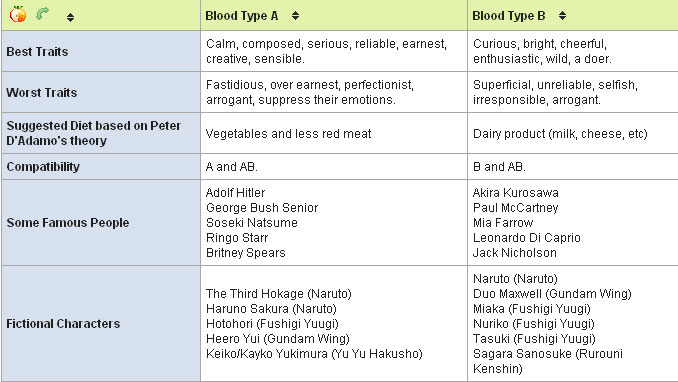


Read also: What blood types are really aboutĪt the time, the film was criticized for creating and spreading false stereotypes about Type B men, who were depicted as callous, selfish and incompatible with Type A women.
A positive blood type personality tv#
The idea became more mainstream in around 2004, when many pop songs, films and TV programs exploring the theory shot to popularity.Īn iconic example is the 2005 romantic comedy “My Boyfriend is Type B,” which pursued the idea that a Type A woman and a Type B man are incompatible as a couple due to their blood-defined personalities. Soon after, the blood type personality theory arrived in neighboring Korea, initially gaining popularity with the younger population.
A positive blood type personality series#
In the 1970s, the theory rose to mass popularity through a series of books published by Masahiko Nomi, who had no medical background. The idea was later picked up by Japanese academic Takeji Furukawa, who published a paper proposing a link between blood type and personality in 1927, also in a bid to explain perceived racial traits.

The slightly different notion of dividing populations by blood type initially originated from Nazi Germany, where research in the 1910s and 1920s sought to prove racial superiority by examining blood type distribution. His Nobel-winning work paved the way for safer blood transfusions. Nonetheless, the theory remains popular to this day.Īs for its history, the ABO blood group system itself was developed by Austrian physician Karl Landsteiner, who in 1901 discovered general variations in human blood, defined by the presence or absence of two antigens A and B. It is a genetic trait that is determined by your parents, with no evidence-based links to personality. Scientifically, blood type differs according to the type of proteins in the blood. Type AB accounts for the remaining 11 percent, according to the pollster. In terms of demographics, around 34 percent of the Korean population are Type A and 28 percent are Type O, while 27 percent are Type B. According to a 2017 poll by Gallup Korea, around half of the population (58 percent) said they believed the blood type personality theory to some degree, while the remaining 42 percent said they did not.


 0 kommentar(er)
0 kommentar(er)
